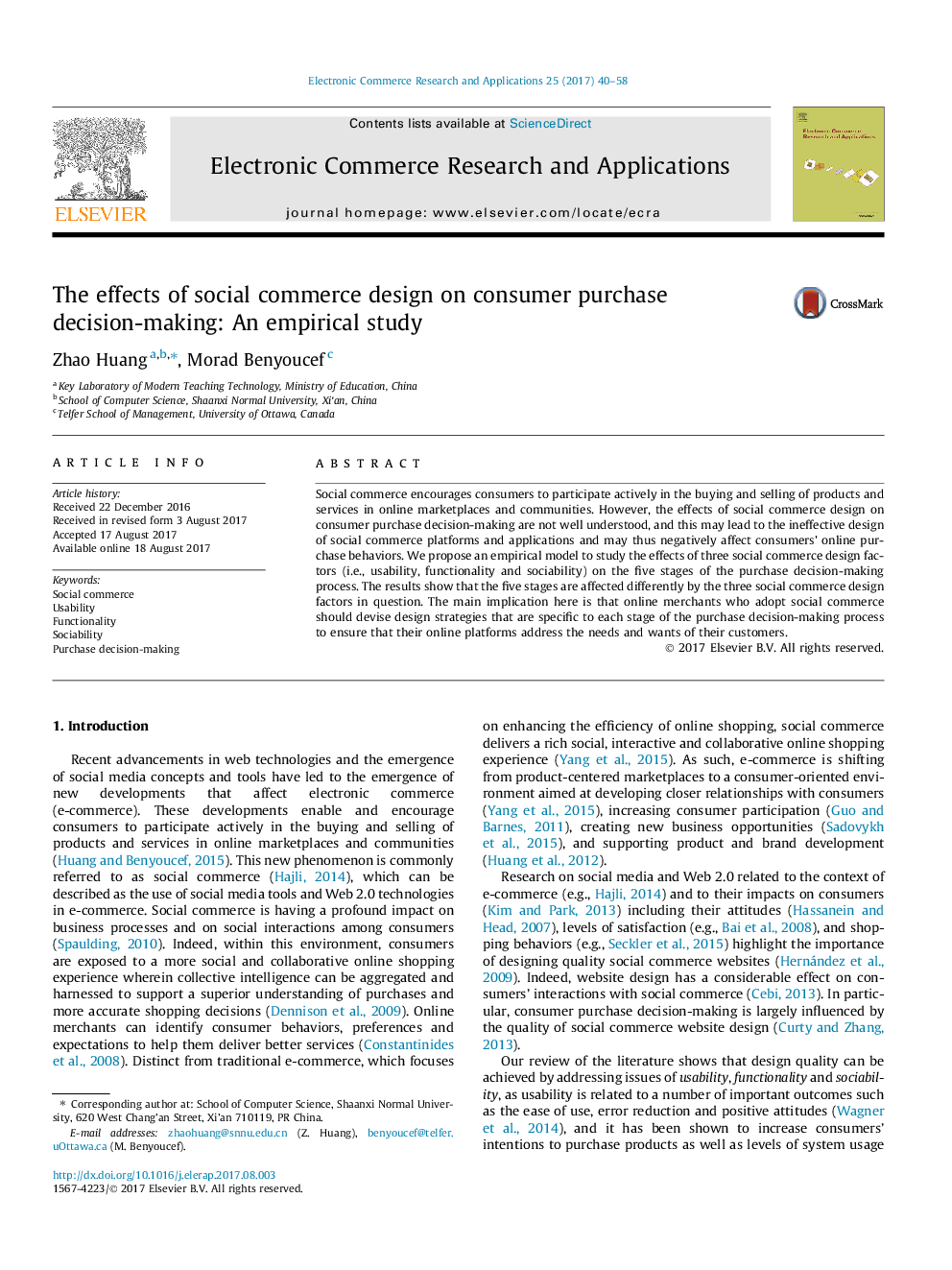| Article ID | Journal | Published Year | Pages | File Type |
|---|---|---|---|---|
| 4942522 | Electronic Commerce Research and Applications | 2017 | 19 Pages |
Abstract
Social commerce encourages consumers to participate actively in the buying and selling of products and services in online marketplaces and communities. However, the effects of social commerce design on consumer purchase decision-making are not well understood, and this may lead to the ineffective design of social commerce platforms and applications and may thus negatively affect consumers' online purchase behaviors. We propose an empirical model to study the effects of three social commerce design factors (i.e., usability, functionality and sociability) on the five stages of the purchase decision-making process. The results show that the five stages are affected differently by the three social commerce design factors in question. The main implication here is that online merchants who adopt social commerce should devise design strategies that are specific to each stage of the purchase decision-making process to ensure that their online platforms address the needs and wants of their customers.
Related Topics
Physical Sciences and Engineering
Computer Science
Artificial Intelligence
Authors
Zhao Huang, Morad Benyoucef,
